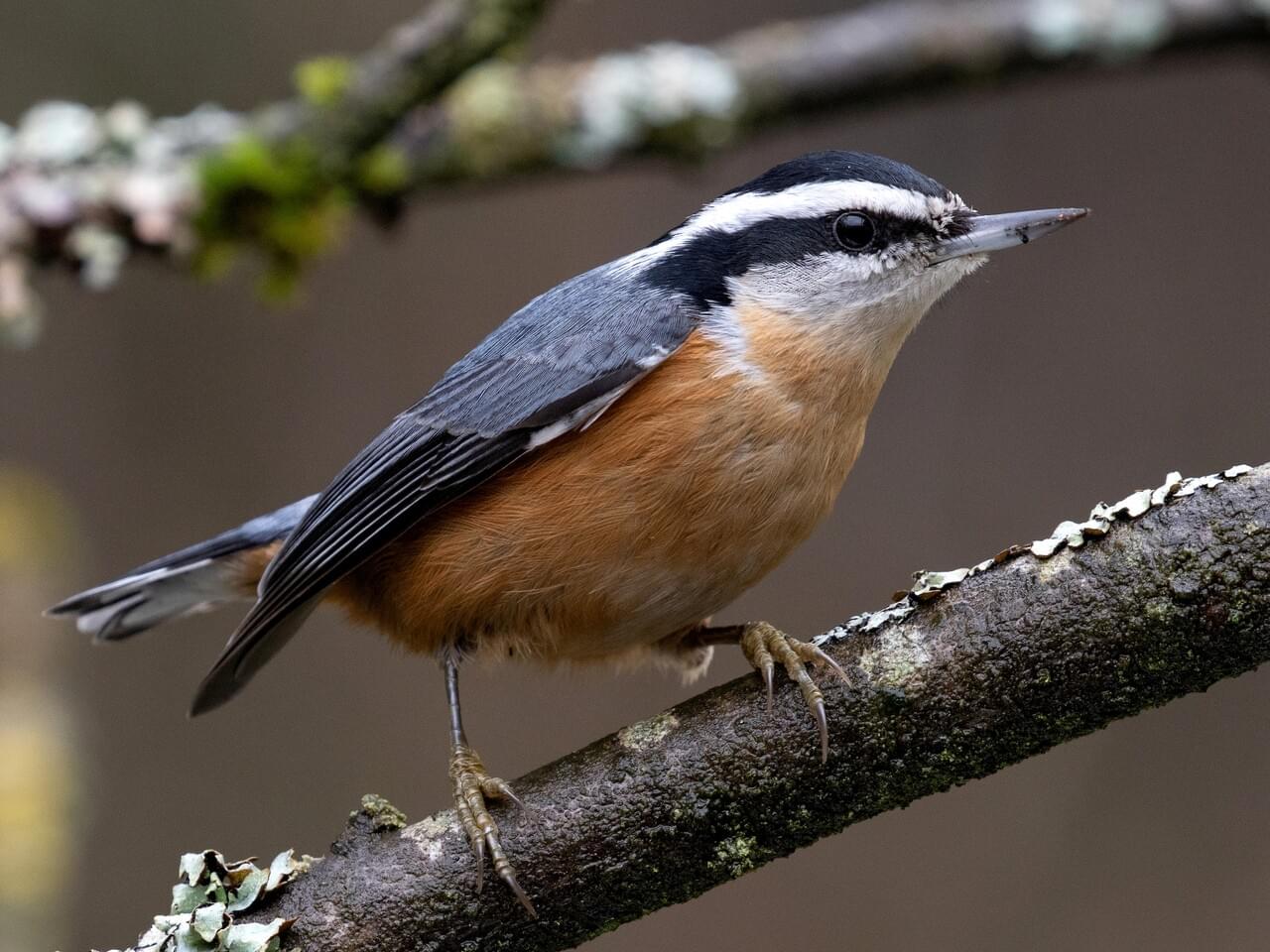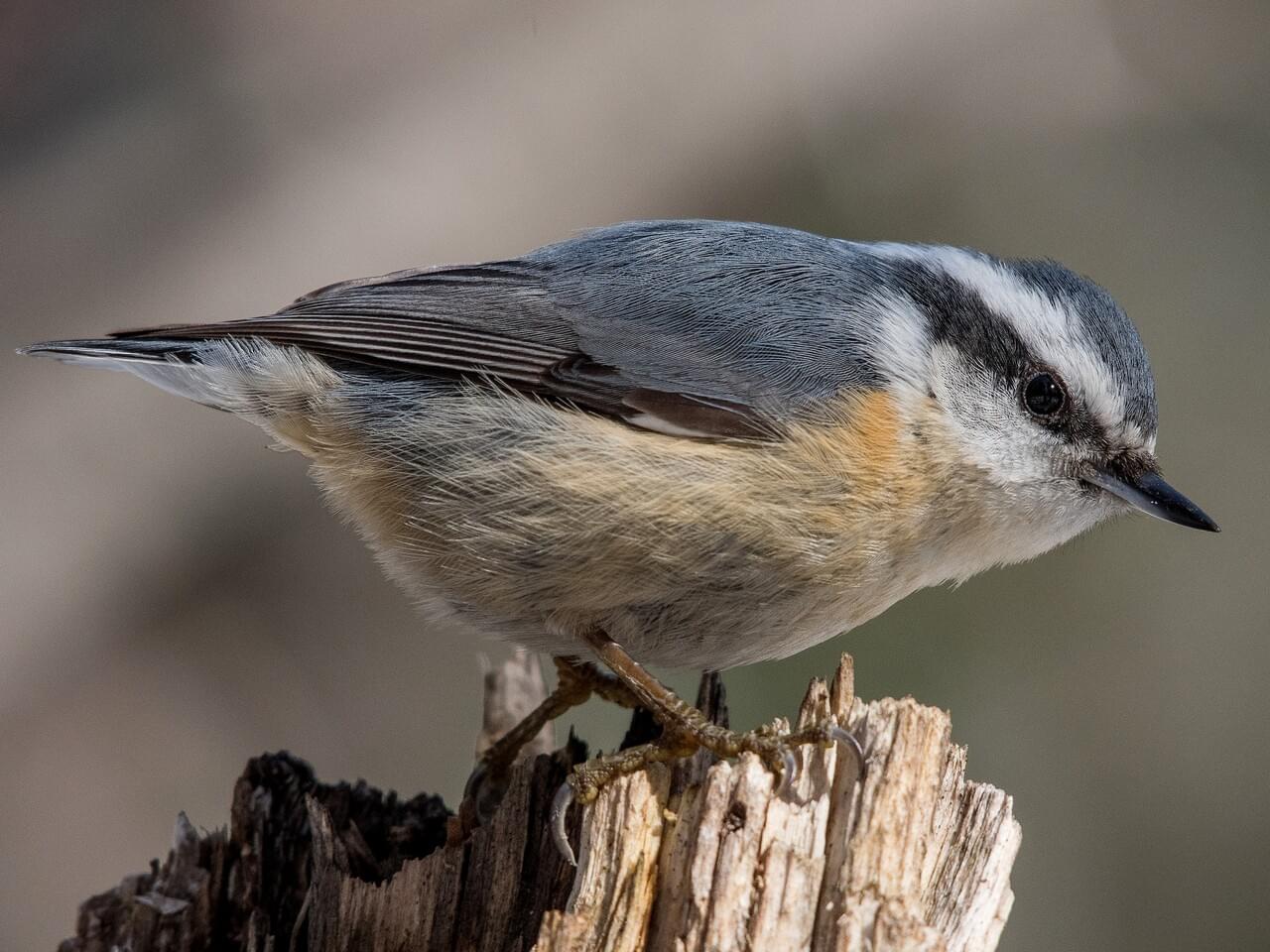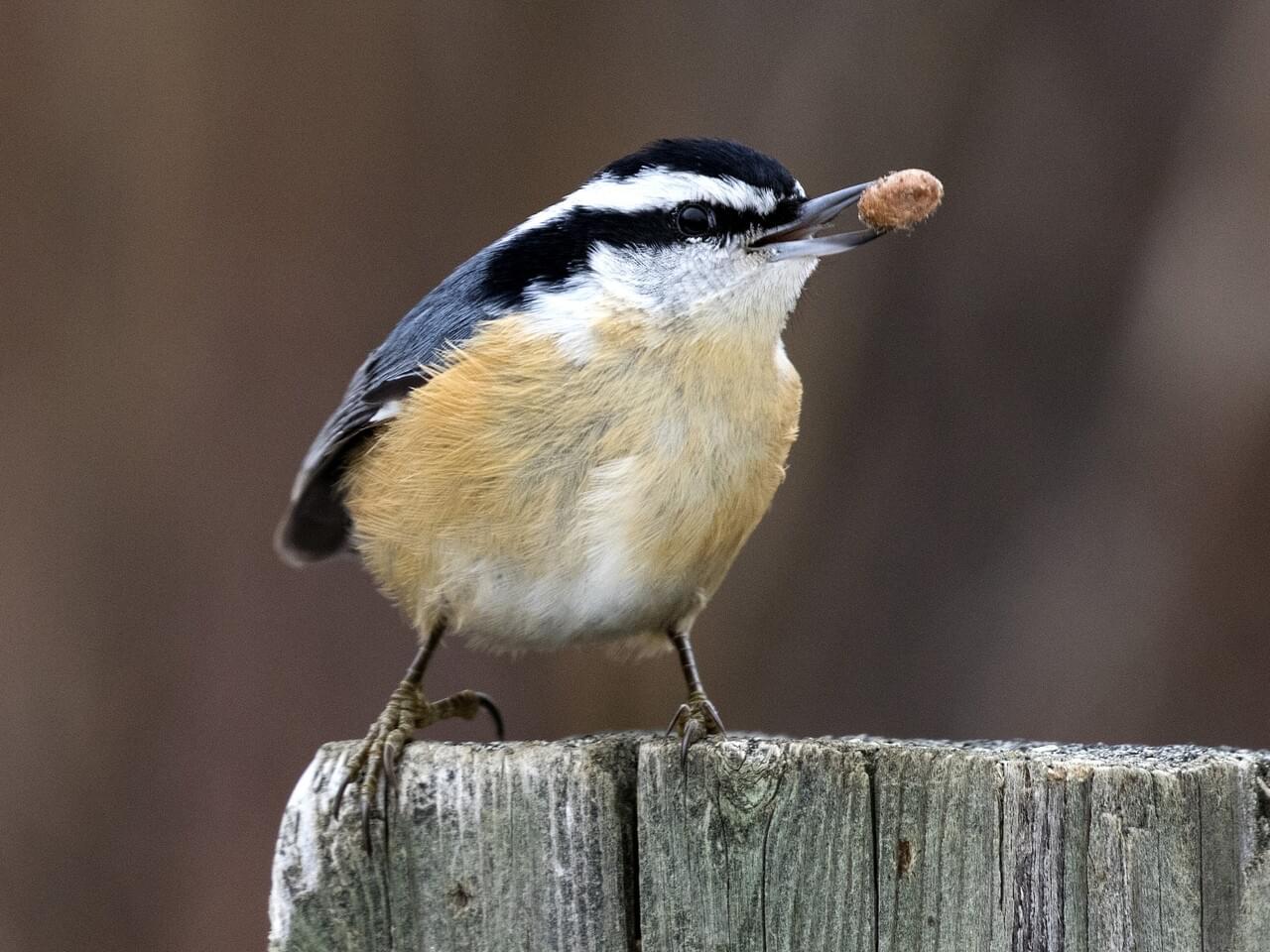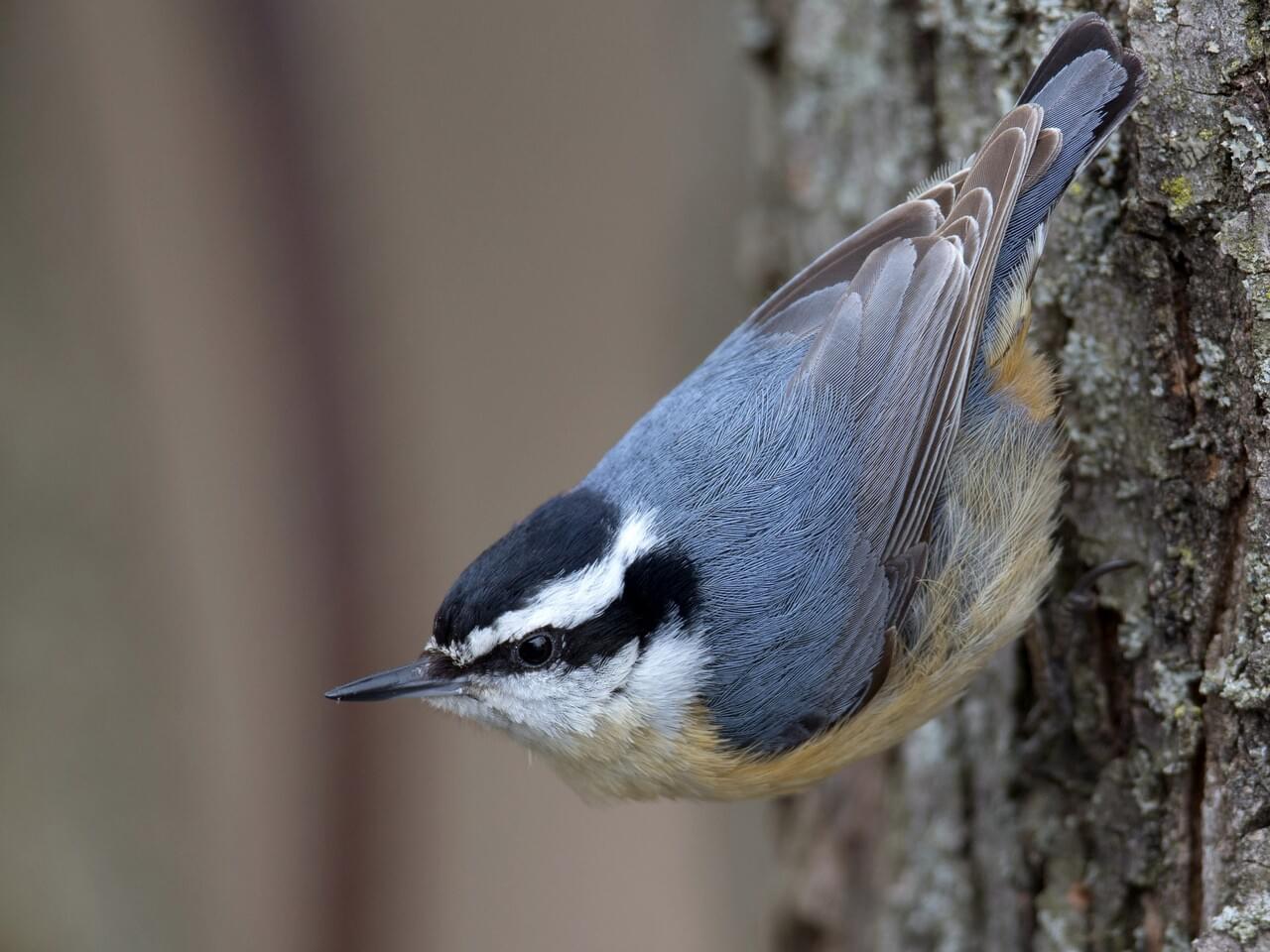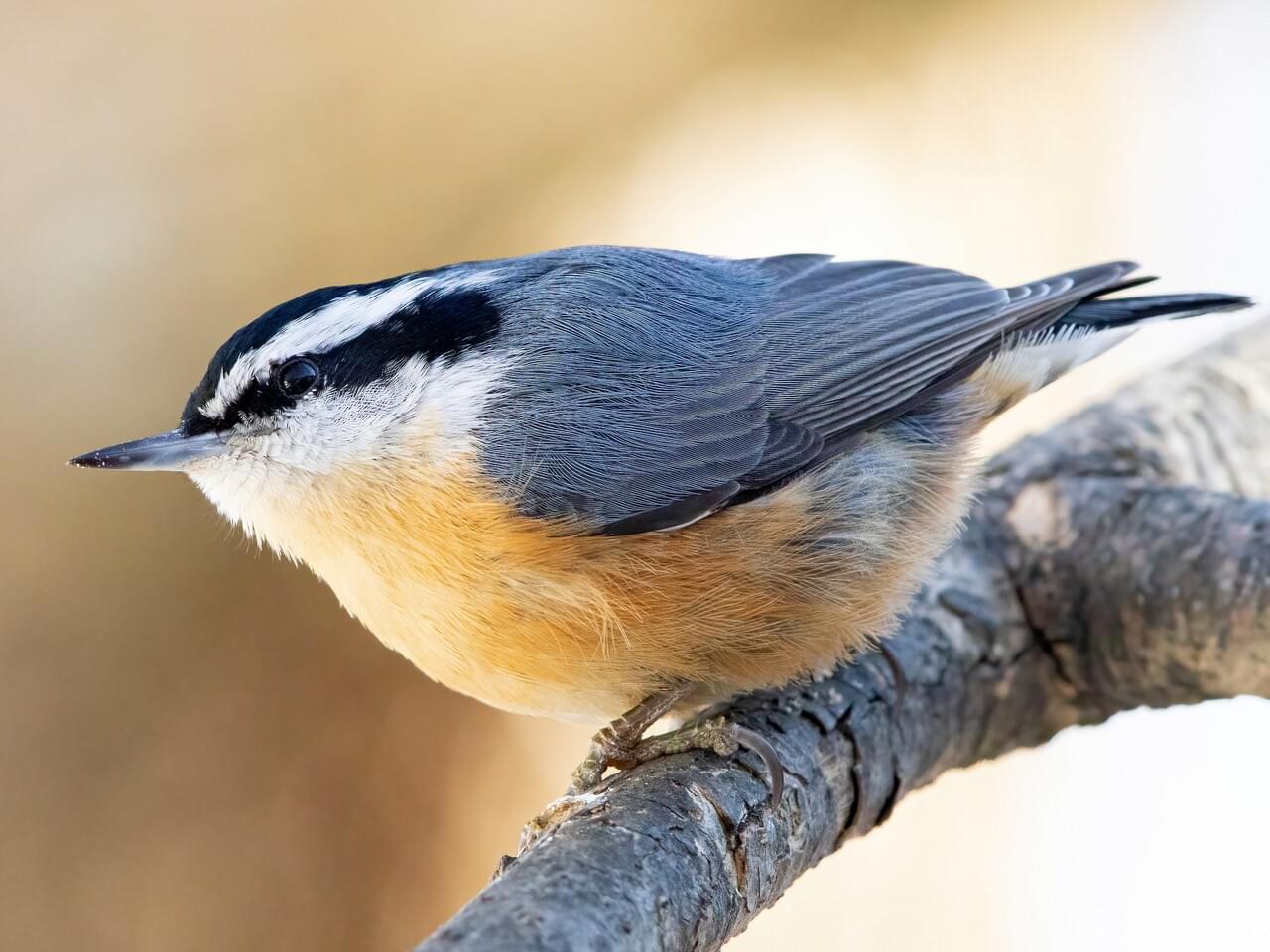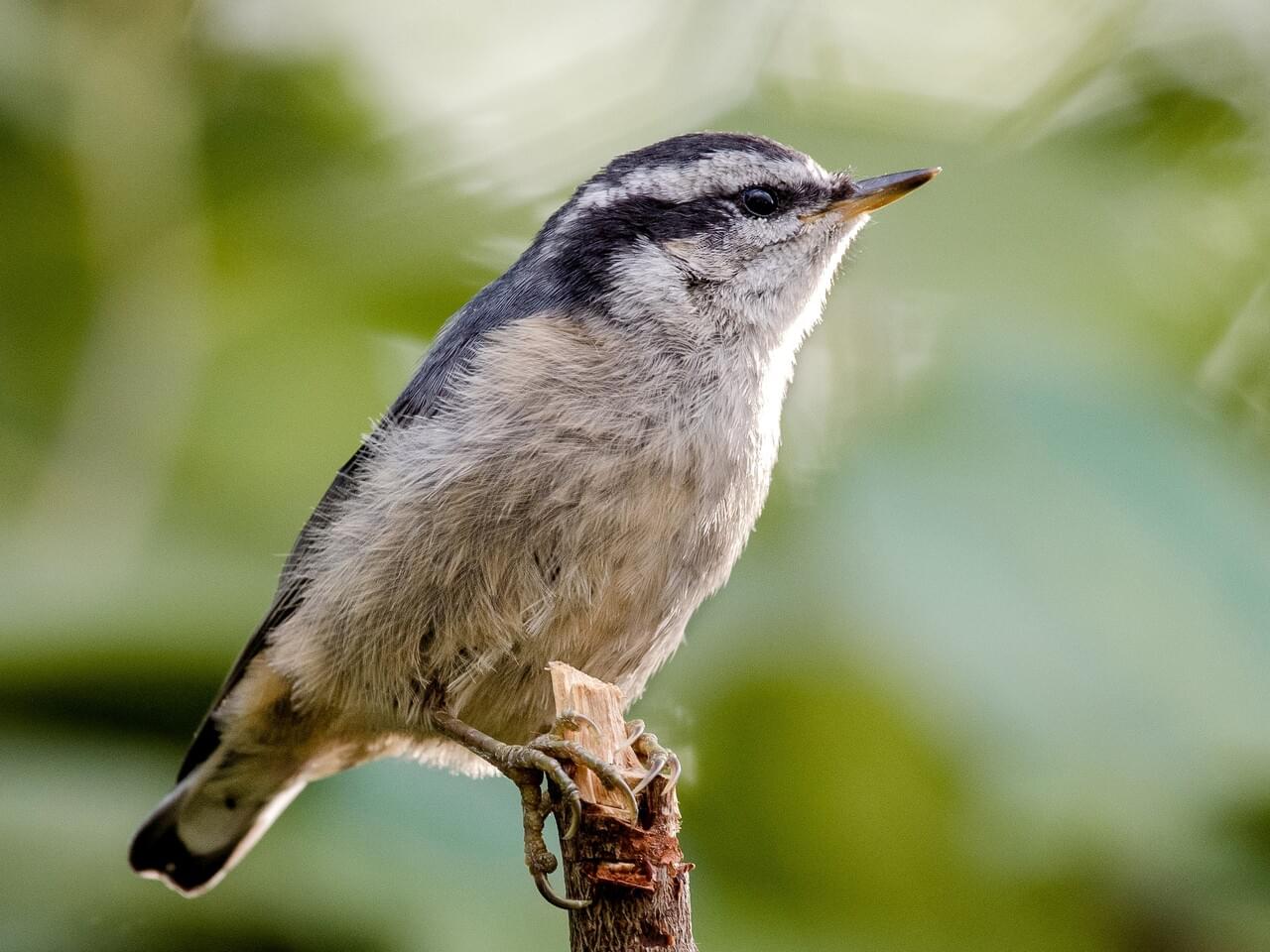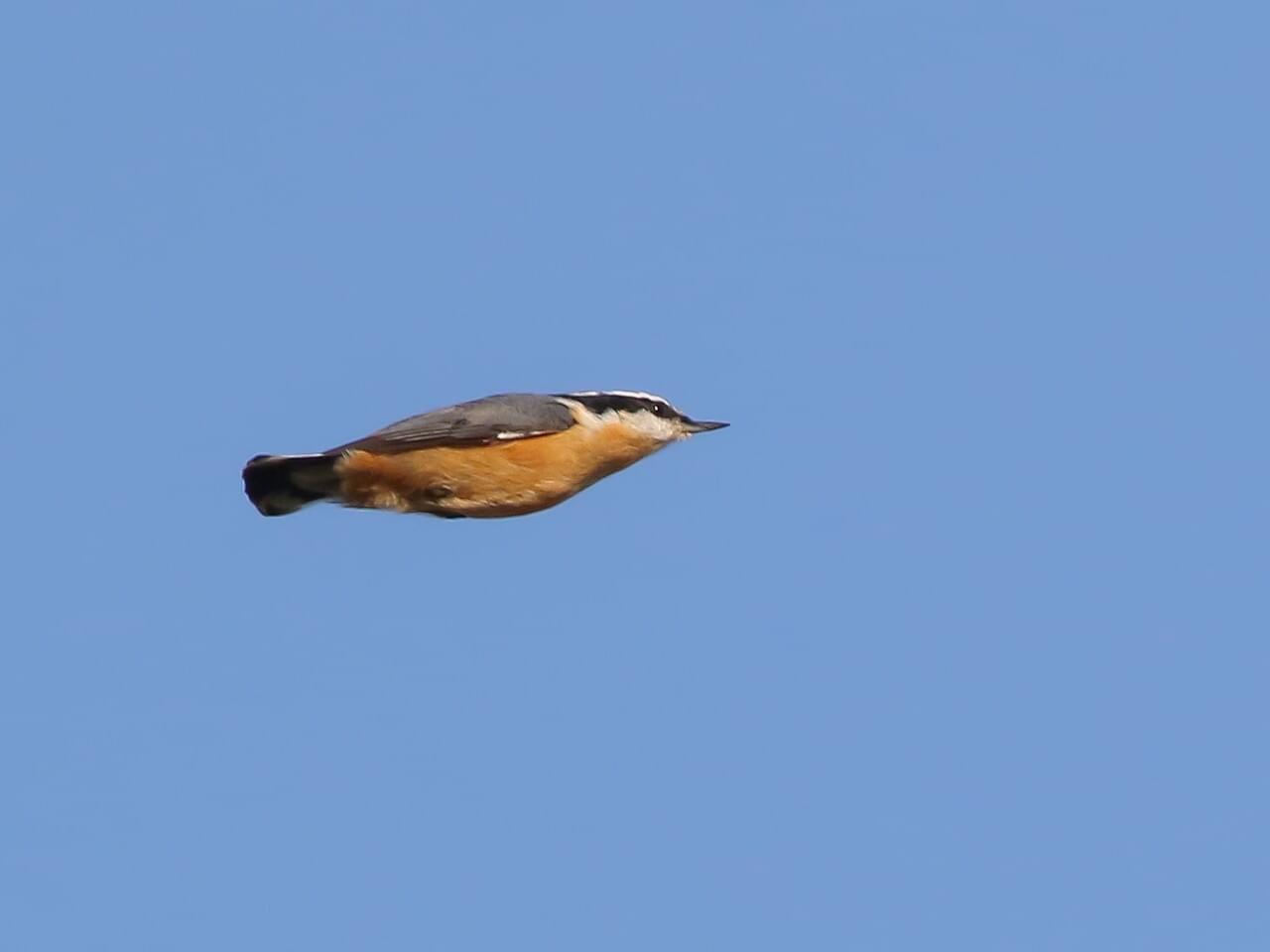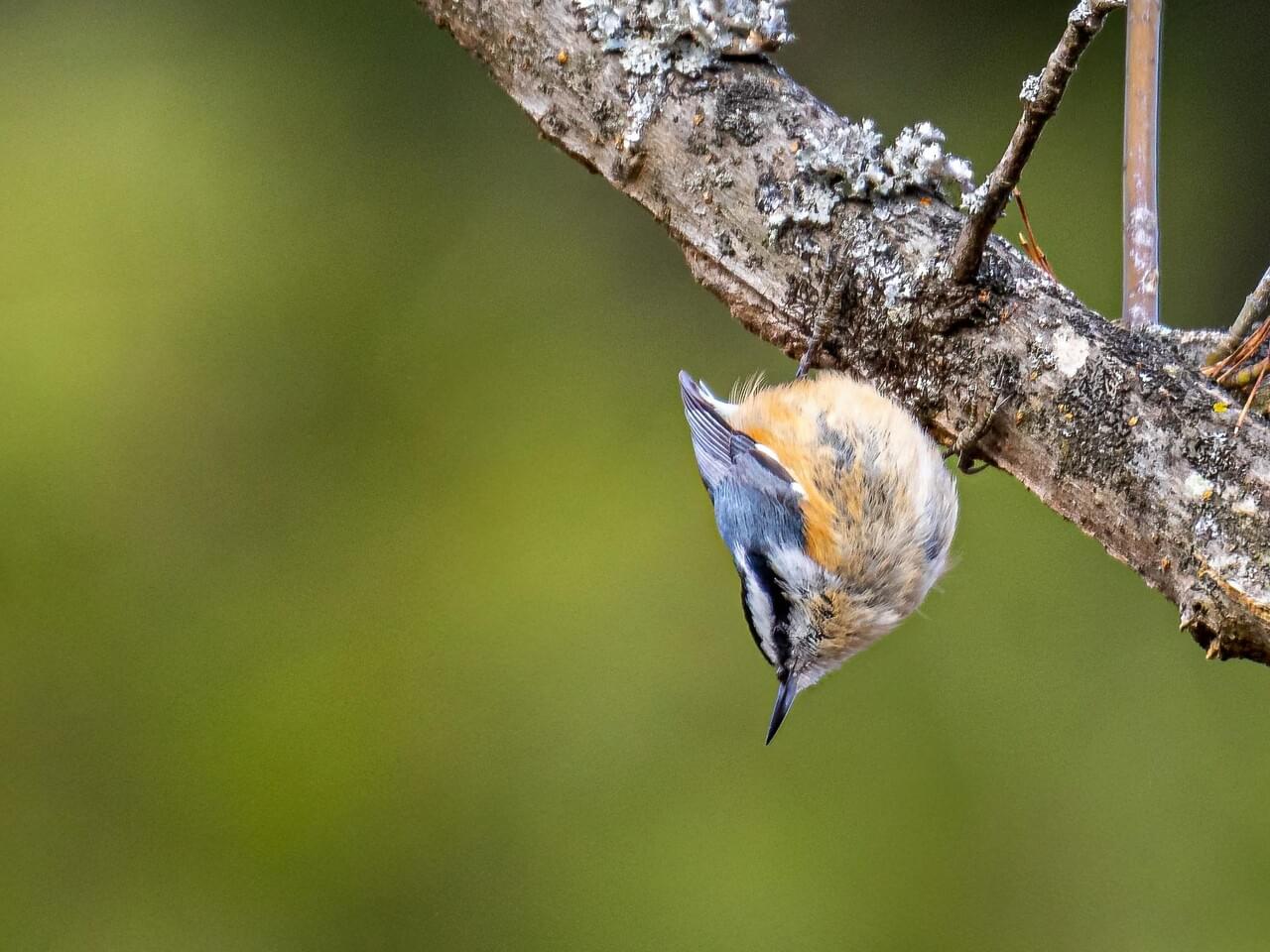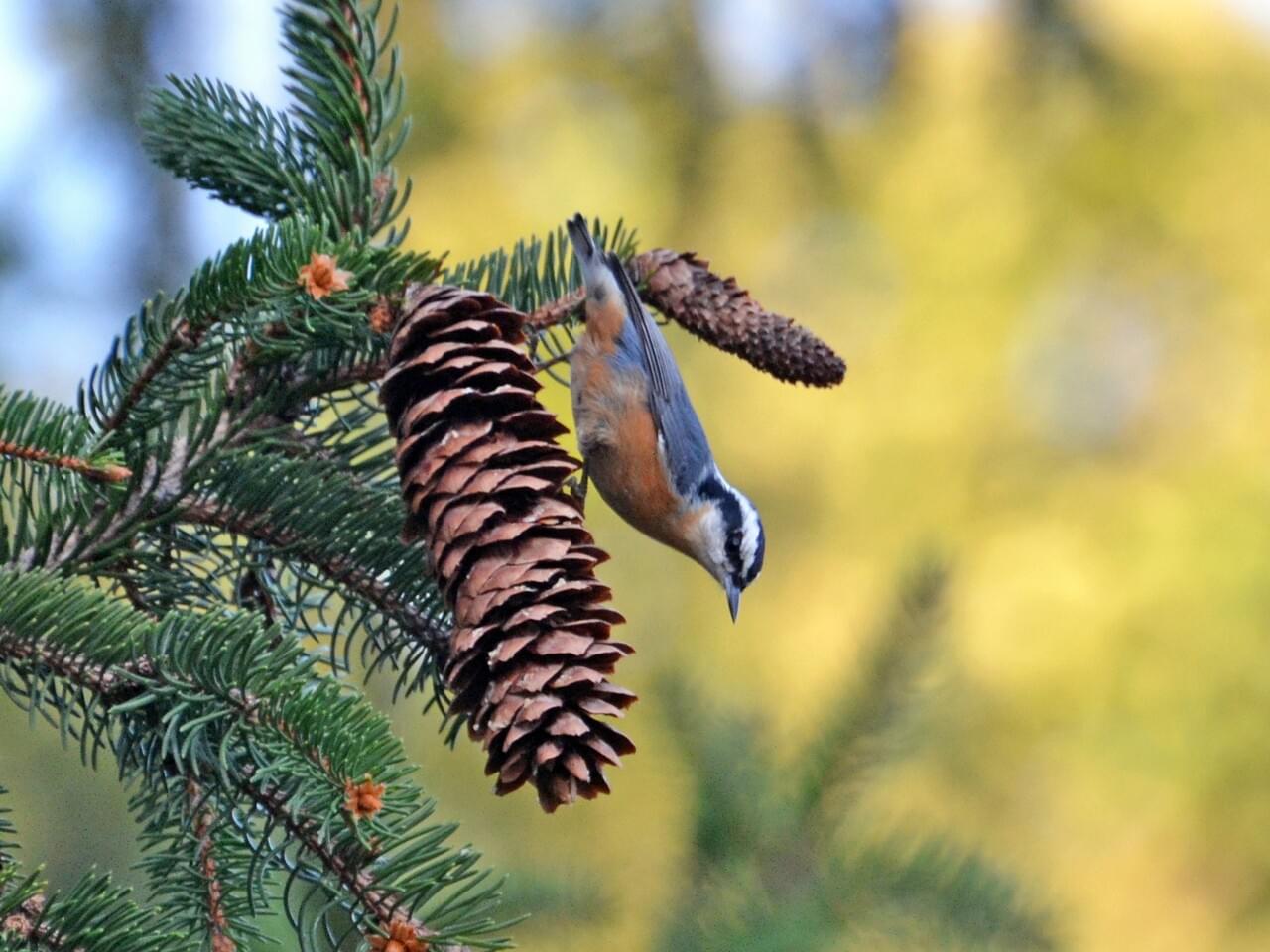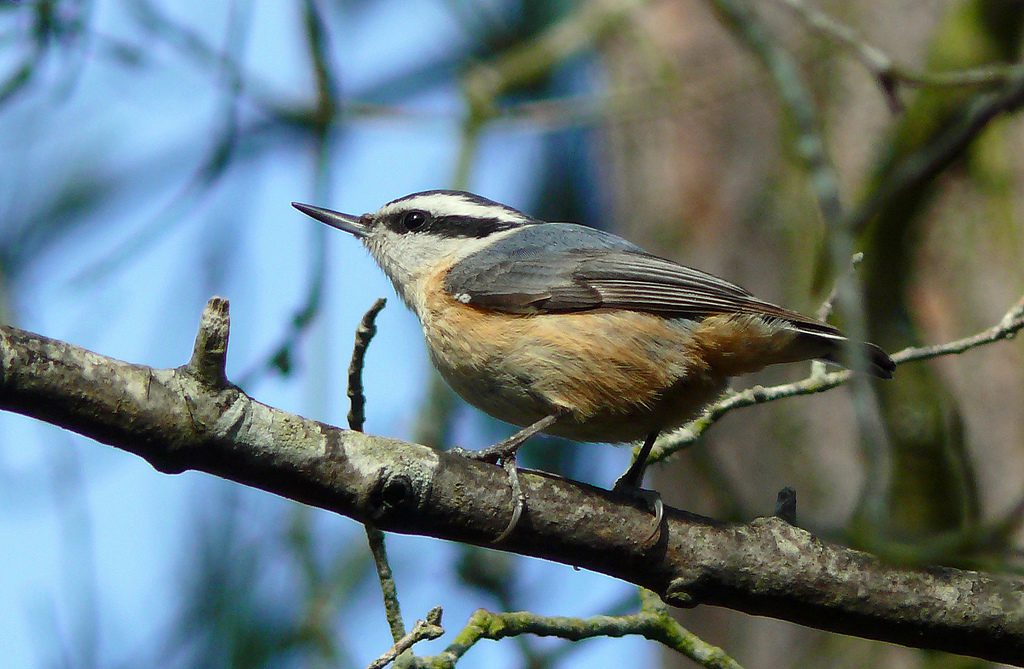 Photo ©
Larry Meade
Photo ©
Larry Meade
Red-breasted Nuthatch
Regional Species
An intense bundle of energy at your feeder, Red-breasted Nuthatches are tiny, active birds of north woods and western mountains. These long-billed, short-tailed songbirds travel through tree canopies with chickadees, kinglets, and woodpeckers but stick to tree trunks and branches, where they search bark furrows for hidden insects. Their excitable yank-yank calls sound like tiny tin horns being honked in the treetops.
Range
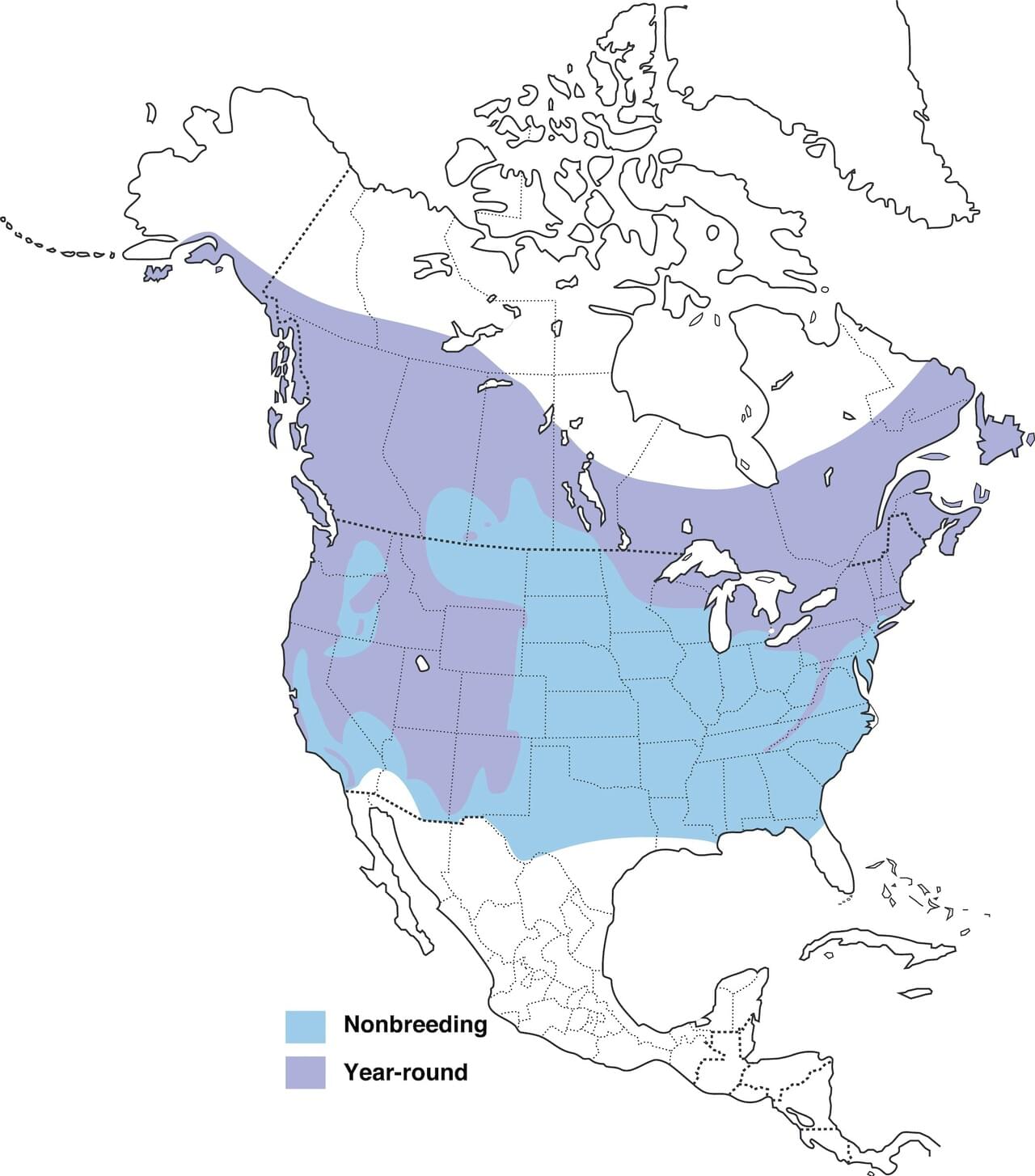
Habitat
Red-breasted Nuthatches live mainly in coniferous forests of spruce, fir, pine, hemlock, larch, and western red cedar. Eastern populations use more deciduous woods, including aspen, birch, poplar, oak, maple, and basswood. During irruptive winters, nuthatches may use habitats such as orchards, scrub, parks, plantations, and shade trees.
Food
In summer, Red-breasted Nuthatches eat mainly insects and other arthropods such as beetles, caterpillars, spiders, ants, and earwigs, and they raise their nestlings on these foods. In fall and winter they tend to eat conifer seeds, including seeds they cached earlier in the year. During outbreaks of spruce budworm, a forest pest, Red-breasted Nuthatches respond strongly to the plentiful food supply. They also eat from feeders, taking peanuts, sunflower seeds, and suet. When given the choice they tend to select the heaviest food item available; if these are too large to eat in one piece they typically jam them into bark and then hammer them open.
Behavior
Red-breasted Nuthatches move quickly and in any direction across tree trunks and branches. When moving downward they typically zigzag, keeping their grip by relying on the large claw on their one backward-pointing toe on each foot. Red-breasted Nuthatches are aggressive birds that sometimes dominate larger birds at feeders. Nuthatches are among the few non-woodpeckers that excavate their own nest cavities from solid wood. Agitated males may call at each other while pointing their heads up, fluttering their wings, and swiveling back and forth. Males court females by turning their backs to them, singing, and swaying from side to side with crest feathers raised, or by flying together in an exaggerated display of slowly fluttering wings or long glides. Males feed females while the females excavate nest cavities. Red-breasted Nuthatches join foraging flocks of chickadees and other small songbirds. Nuthatches sometimes store seeds and insects to help them get through the winter, shoving the food into bark crevices and often covering them with pieces of bark, lichen or pebbles. They typically fly only short distances at a time, with an undulating pattern.
Nesting
Both sexes excavate the nest, but the female does more than the male. Excavation can take up to 18 days and yields a cavity between 2.5 and 8 inches deep. The female then builds a bed of grass, bark strips, and pine needles and lines it with fur, feathers, fine grasses or shredded bark. Both males and females apply conifer resin to the entrance, sometimes applying it with a piece of bark, a remarkable example of tool use.
Appearance
Typical Sound

© Martha Fischer / Macaulay Library
Size & Shape
A small, compact bird with a sharp expression accentuated by its long, pointed bill. Red-breasted Nuthatches have very short tails and almost no neck; the body is plump or barrel-chested, and the short wings are very broad.
Color Pattern
Red-breasted Nuthatches are blue-gray birds with strongly patterned heads: a black cap and stripe through the eye broken up by a white stripe over the eye. The underparts are rich rusty-cinnamon, paler in females.
Plumage Photos
Similar Species
The Red-breasted Nuthatch is the only North American nuthatch with an eyestripe, and the only one with extensive rusty or cinnamon on the underparts. It is smaller and stubbier than the White-breasted Nuthatch. Pygmy Nuthatches of the West and Brown-headed Nuthatches of the Southeast are smaller, with brown head. Brown Creepers have much longer tails and are much browner and much less agile than nuthatches. The Black-and-white Warbler forages along main trunks and branches, but is heavily streaked all over, without the solid gray back or rusty underparts of a Red-breasted Nuthatch.
Did you know?!
- The Red-breasted Nuthatch collects resin globules from coniferous trees and plasters them around the entrance of its nest hole. It may carry the resin in its bill or on pieces of bark that it uses as an applicator. The male puts the resin primarily around the outside of the hole while the female puts it around the inside. The resin may help to keep out predators or competitors. The nuthatch avoids the resin by diving directly through the hole.
- During nest building, the Red-breasted Nuthatch is aggressive, chasing away other hole-nesting birds such as the House Wren, White-breasted Nuthatch, and Downy Woodpecker. A particularly feisty nuthatch may go after Yellow-rumped Warblers, House Finches, Violet-Green Swallows, and Cordilleran Flycatchers.
- Red-breasted Nuthatches sometimes steal nest-lining material from the nests of other birds, including Pygmy Nuthatches and Mountain Chickadees.
